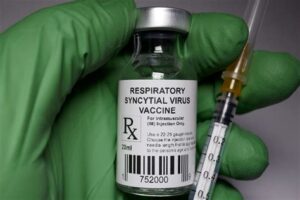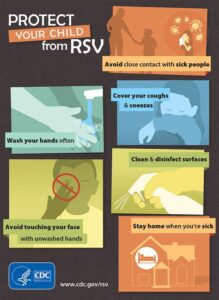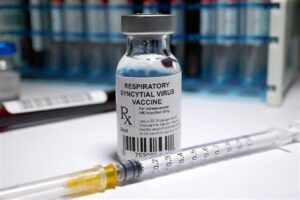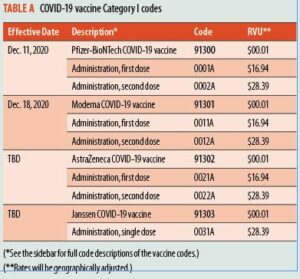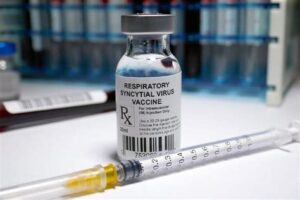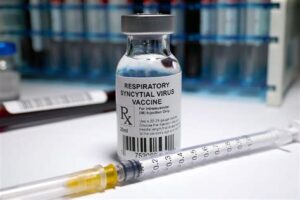Explore the link between RSV vaccination and asthma, understand RSV infections, and find recommendations for effective vaccination strategies for asthmatics.Respiratory Syncytial Virus (RSV) is often associated with children, but its impact on adults, particularly those with asthma, is significant and often overlooked. As asthma sufferers navigate the challenges of respiratory health, understanding the risks posed by RSV becomes crucial. This blog post delves into the relationship between RSV infection and asthma, exploring the specific vulnerabilities adults with asthma face. We’ll also examine how effective the newly developed RSV vaccine is for this demographic, highlighting its potential role in mitigating severe respiratory complications. Finally, we’ll provide updated recommendations for RSV vaccination to empower asthmatic adults in protecting their health. Join us as we unpack these important insights and advocate for informed decisions regarding RSV vaccination.
RSV Vaccine and Asthma
Respiratory Syncytial Virus (RSV) is a common virus that can lead to significant respiratory illness, especially in vulnerable populations, including those with chronic conditions like asthma. Understanding the implications of RSV on individuals with asthma is vital to improve health outcomes and manage risks effectively.
Recent studies indicate that adults suffering from asthma have a heightened risk of severe illness from RSV. This makes the development and administration of an RSV vaccine particularly crucial. The vaccine could provide a protective barrier for this population against the potentially harmful effects of the virus, allowing individuals to better manage their asthma and avoid complications arising from RSV infections.
Healthcare professionals recommend considering the RSV vaccine for adults with asthma as part of a comprehensive asthma management plan. By doing so, patients may be able to reduce their risk of RSV-related respiratory complications, ultimately leading to improved quality of life and reduced hospitalizations.
Understanding RSV Infection
Respiratory syncytial virus (RSV) is a common respiratory virus that causes infections of the lungs and respiratory tract. It is particularly notorious for its impact on infants and young children, but it can also significantly affect adults, especially those with pre-existing health conditions such as asthma. Understanding RSV infection is essential for effective management and prevention.
RSV spreads through respiratory droplets when an infected person coughs or sneezes. It can also survive on surfaces, making it easy to contract in the home or community settings. Symptoms of RSV infection typically include congestion, coughing, and, in more severe cases, shortness of breath. For adults with asthma, RSV can exacerbate their condition, leading to increased wheezing and difficulty breathing.
While the general population may recover from RSV in about a week or two, adults with asthma may experience more prolonged recovery times. Hospitalizations due to complications from RSV are not uncommon in this group. Thus, protecting those with asthma through vaccination and awareness of RSV is crucial.
Risk of RSV Infection in Adults
Respiratory Syncytial Virus (RSV) is often viewed as a childhood illness, but the truth is that adults can also be significantly affected by this virus. RSV is highly contagious and can lead to serious respiratory infections, especially in certain populations. Understanding the risks associated with RSV infection in adults is crucial for prevention and management.
In adults, particularly those with underlying health conditions, the risks of RSV infection can be exacerbated. Adults with pre-existing conditions such as asthma, chronic obstructive pulmonary disease (COPD), or heart disease are particularly at risk of experiencing severe complications from RSV. Research indicates that these groups face a higher likelihood of hospitalization due to RSV-related respiratory issues.
Furthermore, as our understanding of RSV evolves, we now know that transmission isn’t limited to infants or children. Adults can spread the virus, especially when they are in close contact with others. This makes it important for both healthcare providers and the general public to recognize the significance of RSV in adult populations, especially in high-risk groups.
Efficacy of RSV Vaccine for Asthmatics
The advent of the RSV vaccine has brought a wave of hope for individuals suffering from asthma. This is particularly important as those with asthma are at a higher risk of severe complications from respiratory infections, including *respiratory syncytial virus (RSV)*. Research indicates that the effectiveness of the RSV vaccine can vary, but ongoing studies are crucial in providing clarity for the asthmatic population.
Clinical trials have shown that the RSV vaccine can significantly reduce the incidence of RSV infections among high-risk groups, including individuals with asthma. In fact, some studies have reported a reduction of nearly *70%* in RSV-related hospitalization rates for vaccinated asthmatics compared to their unvaccinated counterparts. This substantial difference highlights the importance of vaccination as a preventative measure.
However, it is important to note that while the vaccine is promising, it is not a standalone solution. Asthmatics should continue to follow their treatment plans and consult healthcare providers to discuss their unique situations. The comprehensive approach to managing asthma alongside vaccination can yield the best outcomes for these individuals.
Recommendations for RSV Vaccination
Respiratory Syncytial Virus (RSV) is a significant concern, particularly for adults with underlying health conditions such as asthma. Vaccination is a crucial step in protecting vulnerable populations. It is important to understand the recommendations surrounding RSV vaccination to ensure that those most at risk are well informed and adequately protected.
According to the latest guidelines from health authorities, it is recommended that adults with chronic respiratory diseases, including asthma, should consider receiving the RSV vaccine, especially during the RSV season. This is due to the increased risk of severe RSV infection in individuals who have compromised lung function. Medical professionals, including pulmonologists and allergists, should evaluate each patient’s medical history to determine the necessity of vaccination.
Additionally, caregivers and household members of individuals with asthma should also be encouraged to get vaccinated. This herd immunity strategy helps protect those who may not be able to receive the vaccine themselves. Vaccination not only helps in reducing the risk of infection but also minimizes the overall burden of respiratory illnesses in the community.
Frequently Asked Questions
What is RSV and why is it significant for adults with asthma?
RSV, or respiratory syncytial virus, is a common virus that can cause severe respiratory infections. For adults with asthma, RSV can exacerbate their condition, leading to increased symptoms and potential complications.
How does the RSV vaccine work?
The RSV vaccine works by stimulating the immune system to recognize and fight RSV. This can help prevent severe respiratory infections caused by the virus, which is especially important for vulnerable populations like adults with asthma.
Are there any specific recommendations for adults with asthma regarding the RSV vaccine?
Yes, healthcare providers may recommend the RSV vaccine for adults with asthma, particularly those with moderate to severe symptoms. It is important for these individuals to discuss vaccination options with their healthcare provider.
What are the possible side effects of the RSV vaccine?
Common side effects of the RSV vaccine include mild reactions such as soreness at the injection site, headache, fatigue, and sometimes low-grade fever. More serious side effects are rare but can occur.
Can the RSV vaccine completely prevent infections in adults with asthma?
While the RSV vaccine can greatly reduce the risk of severe infections, it does not provide 100% protection. It is still essential for adults with asthma to practice good hygiene and avoid known triggers.
Is the RSV vaccine recommended for all adults with asthma?
The recommendation for the RSV vaccine can vary based on individual health conditions and risk factors. It’s best for adults with asthma to consult their healthcare providers for personalized advice.
When is the best time for adults with asthma to get vaccinated against RSV?
The best time to get vaccinated against RSV is typically during the fall before the RSV season begins. However, it is important to consult a healthcare provider for specific timing and vaccination schedules.
